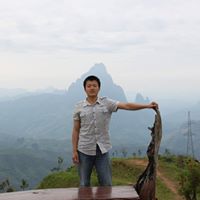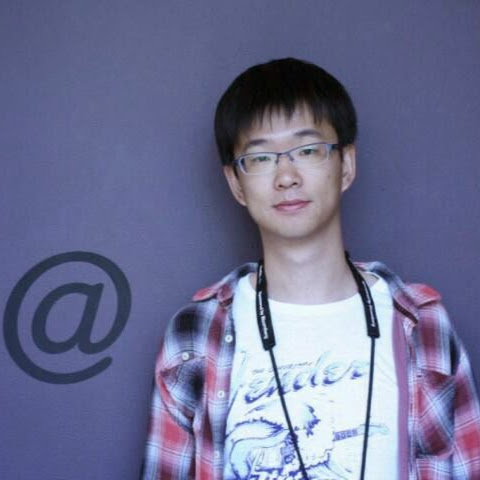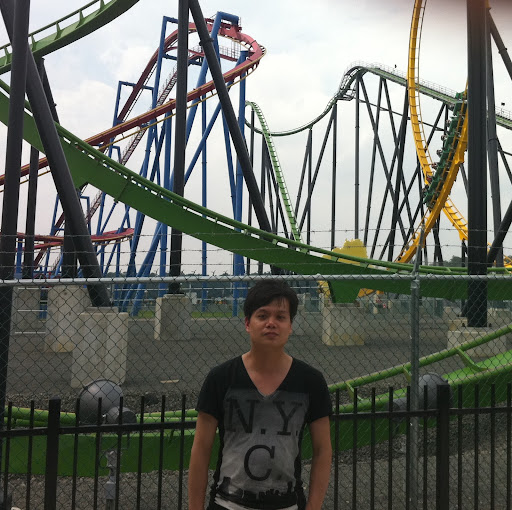Qiang F Chen
age ~47
from Rockville, MD
- Also known as:
-
- Qian F Chen
- Qian G Chen
- Quing Chen
- Qiag Chen
- Phone and address:
- 6 Guy Ct, Rockville, MD 20850
Qiang Chen Phones & Addresses
- 6 Guy Ct, Rockville, MD 20850
- Derwood, MD s
- 13109 Wonderland Way #14, Germantown, MD 20874
- Quincy, MA
- 74 Ferndale Ave, Staten Island, NY 10314
- Bradenton, FL
- Redmond, WA
Work
-
Company:North Shore University Hospital
-
Address:300 Community Drive, Manhasset, NY 11030
Education
-
School / High School:Tongji Medical University1984
Languages
English
Awards
Healthgrades Honor Roll
Ranks
-
Certificate:Anatomic Pathology, 2005
Specialities
Anatomic Pathology
Us Patents
-
System And Method For Controlling Physiological Noise In Functional Magnetic Resonance Imaging
view source -
US Patent:20230023393, Jan 26, 2023
-
Filed:Dec 23, 2020
-
Appl. No.:17/788340
-
Inventors:- Boston MA, US
Emily STERN - Boston MA, US
Hong PAN - Boston MA, US
Qiang CHEN - Baltimore MD, US -
International Classification:G01R 33/48
G01R 33/565 -
Abstract:A system and method is provided for controlling physiological-noise in functional magnetic resonance imaging using raw k-space data to extract physiological noise effects. The method can identify these effects when they are separable and directly reflects the artefactual effects on fMRI data, without the need for external monitoring or recording devices and to be compensated for via rigorous statistical analysis modeling of such noise sources. The physiological fluctuations may be treated as global perturbations presented around the origin point in a k-space 2D slice. Each k-space 2D slice may be acquired at a very short repetition time with an effective sampling rate to sample cardiac and respiratory rhythms through proper reordering and phase-unwarping techniques applied to the raw k-space data.
-
Flexible Plasma Applicators Based On Fibrous Layers
view source -
US Patent:20170224856, Aug 10, 2017
-
Filed:Feb 6, 2017
-
Appl. No.:15/425474
-
Inventors:- New Brunswick NJ, US
Jingjin Xie - Piscataway NJ, US
Qiang Chen - Somerset NJ, US -
International Classification:A61L 2/14
A61L 2/00 -
Abstract:Disclosed herein are flexible plasma applicators based on fibrous layers that are capable of rapidly sanitizing a surface via either direct or indirect contact with said surface.
Isbn (Books And Publications)

Medicine Doctors

Dr. Qiang Hua Chen, New Hyde Park NY - MD (Doctor of Medicine)
view sourceSpecialties:
Anatomic Pathology
Address:
6 Ohio Dr, New Hyde Park, NY 11042
(516)3047228 (Phone), (516)2248586 (Fax)
300 Community Dr, Manhasset, NY 11030
(516)5621277 (Phone)
(516)3047228 (Phone), (516)2248586 (Fax)
300 Community Dr, Manhasset, NY 11030
(516)5621277 (Phone)
Certifications:
Anatomic Pathology, 2005
Awards:
Healthgrades Honor Roll
Languages:
English
Hospitals:
6 Ohio Dr, New Hyde Park, NY 11042
300 Community Dr, Manhasset, NY 11030
North Shore University Hospital
300 Community Drive, Manhasset, NY 11030
300 Community Dr, Manhasset, NY 11030
North Shore University Hospital
300 Community Drive, Manhasset, NY 11030
Education:
Medical School
Tongji Medical University
Graduated: 1984
Medical School
Bronx Lebanon Hospital Center
Graduated: 1984
Tongji Medical University
Graduated: 1984
Medical School
Bronx Lebanon Hospital Center
Graduated: 1984

Qiang H Chen, Manhasset NY
view sourceSpecialties:
Pathologist
Address:
300 Community Dr, Manhasset, NY 11030
27005 76Th Ave, New Hyde Park, NY 11040
27005 76Th Ave, New Hyde Park, NY 11040
Board certifications:
American Board of Pathology Certification in Anatomic Pathology (Pathology)
Name / Title
Company / Classification
Phones & Addresses
Winzone Realty Inc
Real Estate Agents and Managers
Real Estate Agents and Managers
14620 34Th Ave, Flushing, NY 11354
Winzone Realty
Mortgages
Mortgages
Flushing, NY 11354
14620 34 Ave, Flushing, NY 11354
(917)8432432, (718)8863200
14620 34 Ave, Flushing, NY 11354
(917)8432432, (718)8863200
Director
CIN NGAI MUSIC ASSOCIATION, INC
3 Bch St Lower Level, Boston, MA 02111
5 Oak St W #1009, Boston, MA 02116
5 Oak St W #1009, Boston, MA 02116
WATER CHEN DELI INC
Eating Place
Eating Place
83-12 Grand Ave, Elmhurst, NY 11373
8312 Grand Ave, Flushing, NY 11373
8312 Grand Ave, Flushing, NY 11373
Resumes

Qiang Chen Wayland, MA
view sourceWork:
Monsanto Company
Cambridge, MA
2008 to 2012
Scientist University of Massachusetts Medical School
Worcester, MA
2006 to 2008
Postdoctoral Research Associate University of Vermont
Burlington, VT
2004 to 2006
Postdoctoral Research Associate
Cambridge, MA
2008 to 2012
Scientist University of Massachusetts Medical School
Worcester, MA
2006 to 2008
Postdoctoral Research Associate University of Vermont
Burlington, VT
2004 to 2006
Postdoctoral Research Associate
Education:
University of Vermont
Burlington, VT
1999 to 2004
Ph.D. in Microbiology and Molecular Genetics Fudan University
1991 to 1996
B.S. in Microbiology and Microbiological Engineering
Burlington, VT
1999 to 2004
Ph.D. in Microbiology and Molecular Genetics Fudan University
1991 to 1996
B.S. in Microbiology and Microbiological Engineering
Classmates

Qiang Chen
view sourceSchools:
Brier Elementary School Fremont CA 1978-1982
Community:
Karen Englund, Jennifer Vargas, Suzanne Cole

Brier Elementary School, ...
view sourceGraduates:
Qiang Chen (1978-1982),
Sylvia Lam (1999-2003),
Synnora Bettencourt (1984-1989),
Lea Nelson (1996-1997),
Sandra Kleinman (1964-1966)
Sylvia Lam (1999-2003),
Synnora Bettencourt (1984-1989),
Lea Nelson (1996-1997),
Sandra Kleinman (1964-1966)

Qiang Chen
view source
Qiang Chen
view source
Chen Qiang Chen Qiang
view source
Qiang Chen
view source
Qiang Chen
view source
Qiang Chong Chen
view source
Hg Qiang Chen
view source
Qiang Chen
view sourceYoutube
Myspace
Googleplus

Qiang Chen
Work:
UFL

Qiang Chen
Tagline:
Reading!

Qiang Chen

Qiang Chen

Qiang Chen

Qiang Chen

Qiang Chen

Qiang Chen
Flickr
News

Sea life bounced back fast after the 'mother of mass extinctions'
view source- In 2012, palaeontologists Zhong-Qiang Chen at the China University of Geosciences and Mike Benton at the University of Bristol, UK, hypothesized2 that ecosystem recovery happened in steps, with a pyramid-shaped food web building up one level at a time from self-sufficient organisms to apex predat
- Date: Feb 09, 2023
- Category: Science
- Source: Google

'Plantibodies' drugs advance
view source- Developing new drugs is a very expensive and risky business, said Qiang Chen, a professor at Arizona State University currently researching the use of plant-farmed antibodies against the West Nile virus.
- Date: Aug 17, 2014
- Category: Health
- Source: Google

Tobacco-grown antibodies promising in the fight against Ebola
view source- Growing antibodies in plants is safer than in mammals, because plants are so far removed, so if they had some sort of plant virus we wouldnt get sick because viruses are host-specific, said Qiang Chen, a plant biologist at Arizona State University in Tempe, Arizona.
- Date: Aug 06, 2014
- Category: Health
- Source: Google

Earth took 10 million years to recover from biggest extinction
view source- With less than 10 percent of plants and animals surviving and a huge number of biological niches left unfilled, a quick bounce back could seem likely, but according to Dr Zhong-Qiang Chen, from the China University of Geosciences in Wuhan, and Professor Michael Benton from the University of Bristol,
- Date: May 28, 2012
- Category: Sci/Tech
- Source: Google

Earth took 10 million years to recover from mass extinction
view source- "It is hard to imagine how so much of life could have been killed, but there is no doubt from some of the fantastic rock sections in China and elsewhere round the world that this was the biggest crisis ever faced by life." says Dr Zhong-Qiang Chen, from the China University of Geosciences in Wuhan.
- Date: May 28, 2012
- Category: Sci/Tech
- Source: Google

Earth Took 10 Million Years To Recover From Its Greatest Mass Extinction
view source- New evidence is suggesting a recovery that took 10 million years. This new research was done by Dr Zhong-Qiang Chen, from the China University of Geosciences in Wuhan, and Professor Michael Benton from the University of Bristol. It has just been published in the journal Nature Geoscience.
- Date: May 28, 2012
- Category: Sci/Tech
- Source: Google

Earth took 10 million years to recover from mass extinction, says study
view source- The review, by Dr Zhong-Qiang Chen, from the China University of Geosciences in Wuhan, and Professor Michael Benton from the University of Bristol, found the delay to recover from the extinction was due to two factors.
- Date: May 28, 2012
- Category: Sci/Tech
- Source: Google

Earth took '10 mn yrs to recover from greatest mass extinction'
view source- Recent evidence for a rapid bounce-back is evaluated in a new review article by Dr Zhong-Qiang Chen, from the China University of Geosciences in Wuhan, and Professor Michael Benton from the University of Bristol.
- Date: May 28, 2012
- Category: Sci/Tech
- Source: Google
Plaxo

chen qiang
view sourceScarborough, ON

Qiang Chen
view sourceardexchina

Qiang Chen
view sourceDirector of QC Systems at Alexza Pharmaceuticals
Get Report for Qiang F Chen from Rockville, MD, age ~47















